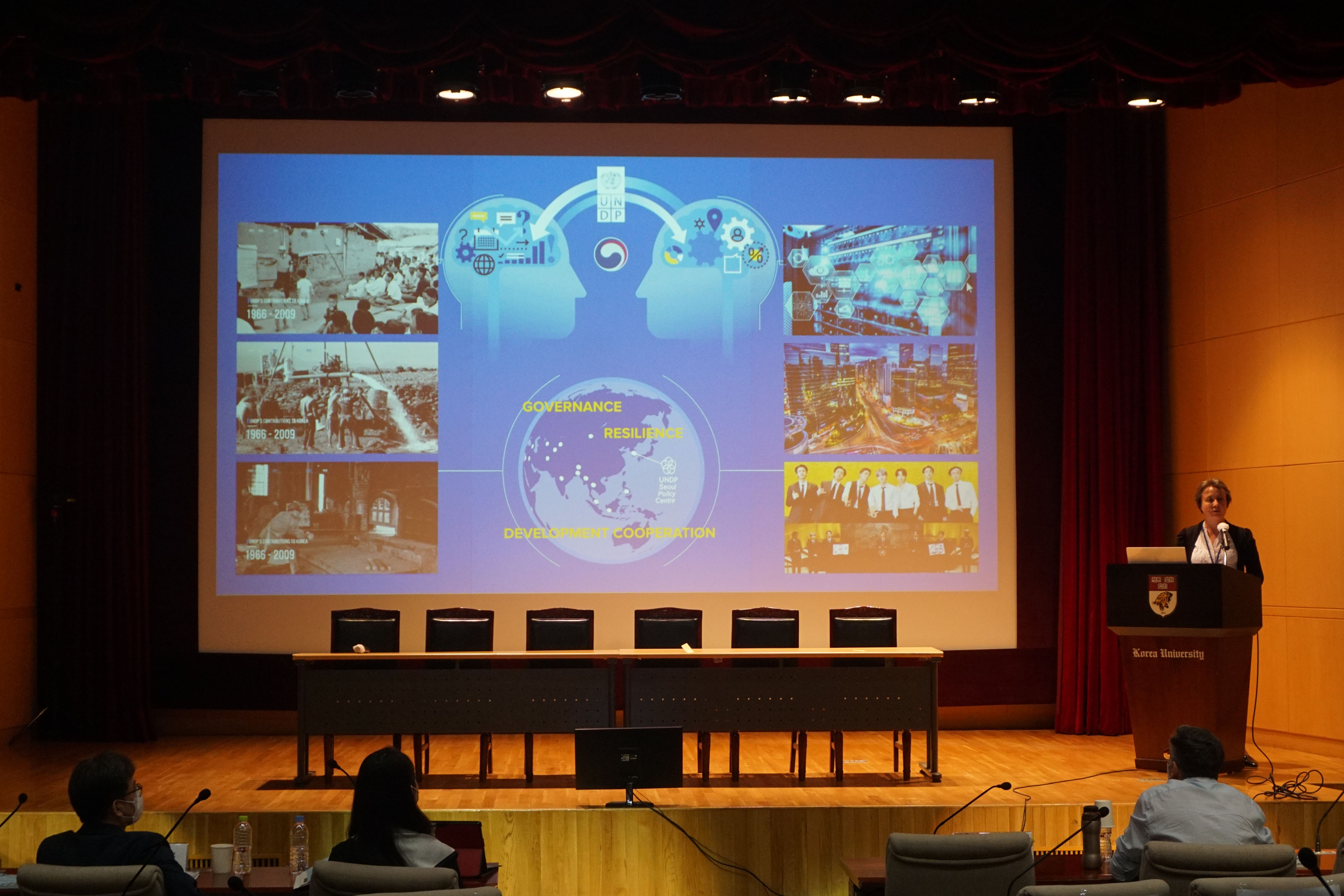
As part of USPC’s SDG Partnership project with Sri Lanka, representatives from the UNDP Seoul Policy Centre (USPC), UNDP Sri Lanka, the Anti-Corruption and Civil Rights Commission (ACRC) of the Republic of Korea, the Commission to Investigate Allegations of Bribery or Corruption (CIABOC) of Sri Lanka, and the research team from KPMG Sri Lanka convened virtually for a technical meeting on 6 February 2025.
Sri Lanka has faced significant governance and corruption challenges, exacerbated by the recent economic crisis. Recognizing the urgent need for reform, the country has prioritized anti-corruption efforts, including the parliament’s approval of the Anti-Corruption Act in 2023. As part of this initiative, Sri Lanka, in partnership with USPC, has embarked on the SDG Partnership project to institutionalize a framework that assesses public institutions’ anti-corruption efforts, inspired by Korea’s Integrity Efforts Assessment (IEA) framework.

Key discussions and takeaways
The technical meeting began with a presentation by the KPMG Research team, which has been tasked by the CIABOC to develop and pilot the IEA-inspired framework in Sri Lankan institutions. The methodology comprises five key phases: (i) translation of the IEA framework into local languages, (ii) stakeholder engagement through workshops to establish institutional understanding, (iii) implementation of the framework, (iv) comprehensive evaluation and scoring, and (v) public launch complemented by a final report and dissemination event. The pilot phase will cover 70 institutions, including all 24 government ministries.
During the discussion and Q&A session, ACRC shared strategic insights from Korea’s experience and provided key lessons learned for Sri Lanka’s implementation. ACRC stressed the importance of a stable legal framework, realistic evaluation criteria, clear communication of the purpose of the IEA, and performance-based incentives to encourage institutional participation. When asked about challenges in the first year of IEA implementation, ACRC noted initial skepticism about the evaluation process and institutional resistance to public disclosure of results. However, “ensuring transparency and a fair, consistent assessment process helped mitigate opposition,” an ACRC representative explained. “Clearly communicating the purpose and methodology of IEA was also crucial in addressing concerns.”
Sri Lanka’s next steps
Ms. Thanuja Bandra, Assistant Director General of CIABOC, announced plans to introduce an internal application system to ensure impartial and effective implementation within target institutions. “The assessment framework aligns with Sri Lanka’s national strategic and action plans,” she said, underscoring the country’s heightened political commitment to combat corruption.
The meeting provided a valuable platform for knowledge exchange, with participants reaffirming the importance of collaboration in developing and finetuning the assessment framework to reinforce Sri Lanka’s anti-corruption efforts.
In this context, the possibility of a South-South and Triangular Cooperation (SSTC) exchange was proposed, opening up a prospect for a wider scope of knowledge exchange for Sri Lanka with other countries that have previously implemented IEA-based SDG Partnership projects, such as Algeria and Montenegro. As Sri Lanka moves forward with its pilot assessment, USPC and ACRC will continue to engage with Sri Lankan partners and provide critical technical support, reinforcing the country’s anti-corruption efforts and strengthening its institutional integrity framework.
UNDP Seoul Policy Centre (USPC) shares Korea’s tested-and-proven policy tools with other countries through SDG Partnerships. SDG Partnerships provide a combination of support, including partnership development with Korean institutions, seed funding, technical assistance, and policy advisory services. It utilizes UNDP’s global network of country offices and the policy expertise and know-how of partner organizations.

 Locations
Locations














